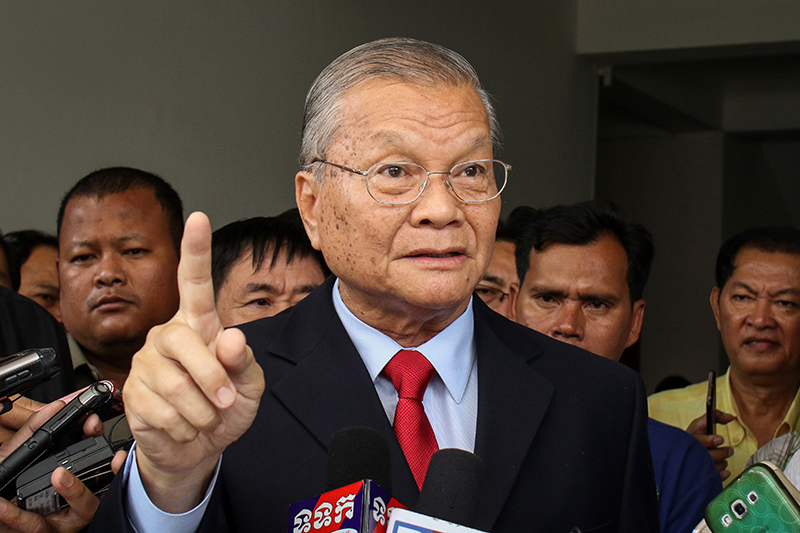The election commission on Thursday said it would cut back on its public hearings into complaints as they were too time-consuming, and declined thorough investigations into potentially false citizenship documents because such probes were difficult and outside its mandate.
The National Election Committee’s (NEC) position drew the ire of the CNRP, which has filed numerous complaints alleging that thousands of registered voters are foreigners ineligible to participate in upcoming elections.

“They must do it,” said CNRP spokesman Yim Sovann of the NEC, arguing it was the body’s duty to ensure that all registered voters were legitimate.
The NEC said it had a database of third-generation identification cards—issued as part of a new digital registration system—from the Interior Ministry that it could use to verify identities.
But first- and second-generation cards “are difficult,” said NEC member Mean Sothi, while deputy secretary-general Sorm Soryda said the committee had no authority to look further into the validity of citizenships.
Under election laws, “there are no points that mention the NEC has to do so,” he said.
Mr. Sovann of the CNRP said he was dismayed by the committee’s attitude, particularly considering that authorities might have issued ID cards to people who were ineligible.
“In Cambodia, there’s still this kind of problem with authorities,” he said. “Please, ask them to be more responsible.”
After three days of late-night deliberations over potentially illegitimate voters, the NEC said it would also cut back on its public hearings, only calling people for testimony in exceptional cases.
Hundreds of registered voters were called into the committee’s headquarters in Phnom Penh from Monday through Wednesday over CNRP complaints that they were missing proper documentation or spoke poor Khmer and were likely Vietnamese.
They took the stand one by one in the morning and, after closed-door deliberations, the registration of every voter was ultimately upheld as valid.
Mao Sophearith, an NEC deputy secretary-general, said complaints against 759 voters were rejected through Wednesday.
The committee has until next Friday to resolve all cases, and the public hearings were taking too much time, Mr. Sophearith said.
“There are many complaints left,” he said. “So the NEC needs to find a mechanism to ensure the resolution of complaints happens on time.”
(Additional reporting by Michael Dickison)




